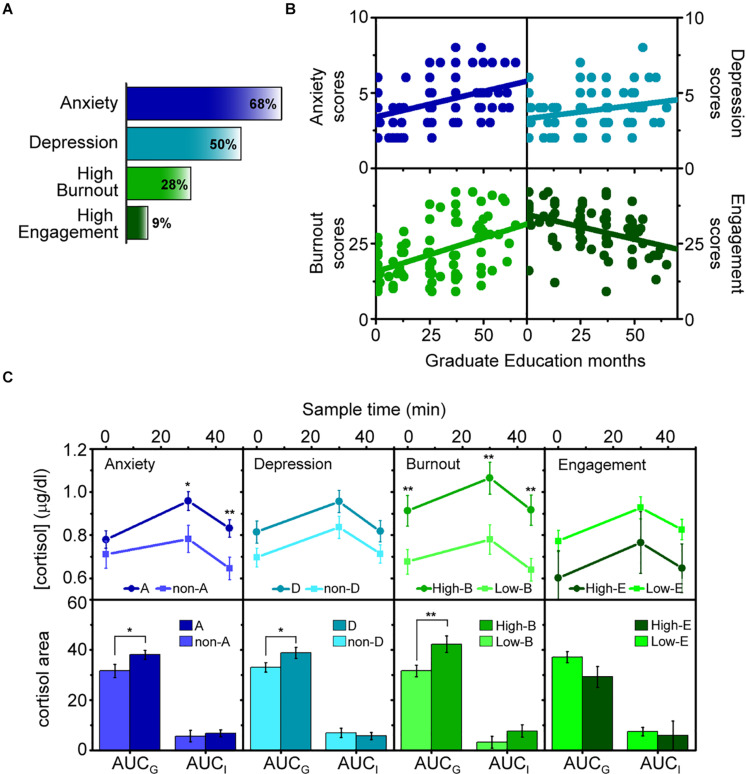FIGURE 1.
Psychobiological assessment of work-related mental health issues in graduate students. (A) Prevalence of the work-related mental health issues within the population of graduate students analyzed. (B) Linear correlation of months of graduate education with Anxiety (Pearson r = 0.337, p = < 0.001), Depression (Pearson r = 0.195, p = < 0.05), Burnout (Pearson r = 0.454, p = < 0.001), and Work Engagement (Pearson r = −0.424, p = < 0.001) scores among the students. (C) Comparison of the cortisol awaking response (CAR) and its respective indices (AUCG and AUCI) between the different graduate student groups, i.e., graduate students with (A) and without anxiety symptoms (non-A), with (D) and without (non-D) depression symptoms, with High (High-B) and Low (Low-B) Burnout, and with High (High-E) and low (Low-E) work engagement. The graphs show mean values, with error bars representing the standard error of the mean. Statistical significance: *p < 0.05; **p < 0.01.

